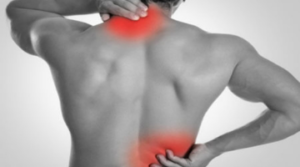Back and Neck Pain

Neck Pain
Your neck is created of vertebrae that stretch from the os to the higher body part.Cervical discs absorb shock between the bones. The bones, ligaments, and muscles of your neck support your head and permit for motion.Any abnormalities, inflammation, or injury will cause neck pain or stiffness.
If you have got neck pain that continues for quite every week, is severe, or is among different symptoms, look formedical attention in real time.
Causes of neck pain
- Neck pain or stiffness will happen for a different of reasons.
- Muscle tension and strain
- Poor posture
- Working at a table for too long while not dynamic position
- Sleeping with your neck in a bad position
- Jerking your neck during exercise
Injury
The neck is particularly vulnerable to injury, particularly in falls, automobile accidents, and sports, wherever the muscles and ligaments of the neck square measure forced to maneuver outside of their traditional rang
Heart attack
- Shortness of breath
- Sweating
- Nausea
- Vomiting
- Arm or jaw pain
Meningitis
Meningitis is an inflammation of the thin tissue that surrounds the brain and spinal cord. In people who have meningitis, a fever and a headache often occur with a stiff neck. Meningitis can be fatal and is a medical emergency.
Other causes
- Rheumatoid arthritis: it causes pain, swelling of the joints, and bone spurs.
- Osteoporosis: it causes weakens bones and can lead to small fractures.
- Fibromyalgia: it causes muscle pain throughout the body, especially in the neck and shoulder region.
Back Pain
Back pain usually happens as a result of one thing is off within the approach your spinal joints, muscles, discs, and nerves match along and move. Your doctor can check to see if you have Herniated discs can cause pain in your lower back or hip because the nerves there are pressed
Causes of back pain
- Persistent aching or stiffness anywhere along your spine, from the base of the neck to the tail bone Sharp, localized pain in the neck, upper back, or lower back especially after lifting heavy objects or engaging in other strenuous activity; (pain in the upper back can also be a proof of a heart failure or alternative critical conditions.)
- Chronic ache within the middle or lower back, especially after sitting or standing for extended periods.
- Back pain that radiates from the low back to the body part, down the back of the thigh, and into the calf and toes.
- Inability to face straight while not having pain or muscle spasms within the lower back